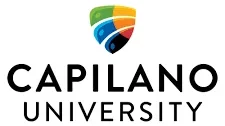
France
France is one of the most popular destinations for international students. The main benefits of France are:
- Top-notch educational system
- A pleasant way of living
- Tuition is quite cheap
You may easily find a world-class education in the nation, regardless of your goals for your education – undergraduate, graduate, or otherwise. Moreover, several French colleges and other educational facilities deliver top-notch education to individuals everywhere, regardless of where you visit. You may be confident that, as a student at one of these educational institutes, you will experience the many other beneficial aspects of the nation in addition to receiving top-quality education.
Table Of Contents
- Why come to France to study?
- The price of education in France
- France's criteria for student visas
- Schedule a consultation with a specialist.
- France's conditions for admission
- France offers scholarships to foreign students.
- Opportunities for employment after study
Why come to France to study?
One of the biggest higher education systems in Europe, if not the entire globe, is found in France. Many French universities are ranked among the top universities in the world. Among these are the University of Paris-Sud, Pierre and Marie Curie University, École Normale Supérieure, and École Polytechnique.
France is the ideal location for your degree study abroad because of its lively student body, rich culture, mouthwatering food, and breathtaking architecture! Studying in France can also help you learn the language and gain a fresh cultural viewpoint.
France is a popular study abroad destination for international students. Students can enroll full-time or part-time in a variety of classes and schedules offered by French universities. Depending on the college, students’ availability for these classes will also change.
France’s conditions for admission
The individual institution, the program level (undergraduate vs. graduate), and your nationality (EU/EEA vs. non-EU/EEA) might all affect the admission requirements for studying in France. Here is a broad summary of the typical procedures and paperwork that non-EU/EEA students must complete:
Choose Your Program: Look for colleges and courses that fit your academic preferences.
Check Eligibility: Make sure you fulfill the prerequisites for admission to the program of your choice. This could include prerequisites for pertinent subjects as well as minimal academic requirements (such as a high school degree or its equivalent).
Apply for the DAP (Demande admission Préalable): The majority of non-EU/EEA students applying to French bachelor’s or master’s programs must complete this mandatory pre-admission application. The “Mes Services” portal on the Campus France website is used to submit applications.
Application Documents:
- Filled-out online application
- Scores from standardized tests, if applicable
- A copy of your passport
- The recommendation letter
- Guarantee of Funds
- Official transcripts
- Evidence of proficiency in either English or French
- Letter of Motivation
- Portfolio
The price of studying in France In addition to offering excellent instruction, public universities in France also have incredibly low tuition costs. Furthermore, nationals and permanent residents of EEA nations and Switzerland are entitled to attend public universities free of tuition, with the exception of a matriculation fee of roughly 200 euros each year.
Students from non-European nations, however, are required to pay between 3,000 and 4,000 euros per year. Furthermore, annual tuition at private colleges might reach 20,000 euros. Depending on the subject, public universities charge international students pursuing bachelor’s, master’s, or doctoral degrees between 170 and 650 EUR annually. Living in France as a student doesn’t have to be expensive.
Additionally, the projected monthly student budget, including housing, in cities like Toulouse, Lyon, or Bordeaux is between 850 and 1,000 euros. Still, by European standards, it is tiny. Because costs vary by geography, you might save even more money in smaller communities. The city, Paris, is an exception, though, costing at least 1,250 to 1,400 euros a month.
Scholarships For International Students In France
There are numerous benefits of studying in France that are probably well known, particularly when paired with the country’s outstanding educational institutions and prospects. Numerous financial aid programs are available to make college more affordable for those who wish to attend a French university.
Students that fulfill the prerequisites can also apply for loans and grants. Because the French government also covers a percentage of the costs of attending a university in the country, going to college in France is a wise financial move. Moreover, tuition in France is far less expensive than in other countries.
Additionally, the Erasmus+ program and a number of scholarships offered by French public institutions enable international students to finance their education in France and around Europe.
France’s criteria for student visas
- A valid passport
- Application for a visa
- An EEF figure
- Evidence of France residency
- Evidence of payment for the visa application fee
- Evidence of short-term lodging in France
- A picture from your passport
- Letter of acceptance to the university
- A certificate of EEF entry
- Evidence of health insurance
- Evidence of having enough money to stay in France
Opportunities for employment after study
There are numerous job opportunities in France for foreign grads. Additionally, you might not need a temporary resident permit in your nation. A student can only stay in France after graduation if he has a job that pays. Additionally, working students are eligible to apply for a residency visa. Both undergraduate and graduate students should be aware of this.
An Autorisation Provisoire de Séjour is a temporary residency permit that non-European graduate students may apply for if they are unemployed. International students are allowed to work at the university where they are studying in France. Jobs are scheduled around study and class times to help students manage their education. However, this is a good way to get work experience.
Schedule a consultation with a specialist.
Do you plan to continue your education in France? We are here to help you whenever you need us! You can schedule a one-on-one consultation to go over your study abroad options, costs, scholarships, and other details by completing our short form. Even though the process may seem overwhelming, we offer expert advice and support at every turn.
We can help you achieve your study abroad dreams if you schedule an appointment with us right now!

France
France is one of the most popular destinations for international students. The main benefits of France are:
- Top-notch educational system
- A pleasant way of living
- Tuition is quite cheap
You may easily find a world-class education in the nation, regardless of your goals for your education – undergraduate, graduate, or otherwise. Moreover, several French colleges and other educational facilities deliver top-notch education to individuals everywhere, regardless of where you visit. You may be confident that, as a student at one of these educational institutes, you will experience the many other beneficial aspects of the nation in addition to receiving top-quality education.
Table Of Contents
- Why come to France to study?
- The price of education in France
- France's criteria for student visas
- Schedule a consultation with a specialist.
- France's conditions for admission
- France offers scholarships to foreign students.
- Opportunities for employment after study
Why come to France to study?
One of the biggest higher education systems in Europe, if not the entire globe, is found in France. Many French universities are ranked among the top universities in the world. Among these are the University of Paris-Sud, Pierre and Marie Curie University, École Normale Supérieure, and École Polytechnique.
France is the ideal location for your degree study abroad because of its lively student body, rich culture, mouthwatering food, and breathtaking architecture! Studying in France can also help you learn the language and gain a fresh cultural viewpoint.
France is a popular study abroad destination for international students. Students can enroll full-time or part-time in a variety of classes and schedules offered by French universities. Depending on the college, students’ availability for these classes will also change.
France’s conditions for admission
The individual institution, the program level (undergraduate vs. graduate), and your nationality (EU/EEA vs. non-EU/EEA) might all affect the admission requirements for studying in France. Here is a broad summary of the typical procedures and paperwork that non-EU/EEA students must complete:
Choose Your Program: Look for colleges and courses that fit your academic preferences.
Check Eligibility: Make sure you fulfill the prerequisites for admission to the program of your choice. This could include prerequisites for pertinent subjects as well as minimal academic requirements (such as a high school degree or its equivalent).
Apply for the DAP (Demande admission Préalable): The majority of non-EU/EEA students applying to French bachelor’s or master’s programs must complete this mandatory pre-admission application. The “Mes Services” portal on the Campus France website is used to submit applications.
Application Documents:
- Filled-out online application
- Scores from standardized tests, if applicable
- A copy of your passport
- The recommendation letter
- Guarantee of Funds
- Official transcripts
- Evidence of proficiency in either English or French
- Letter of Motivation
- Portfolio
The price of studying in France In addition to offering excellent instruction, public universities in France also have incredibly low tuition costs. Furthermore, nationals and permanent residents of EEA nations and Switzerland are entitled to attend public universities free of tuition, with the exception of a matriculation fee of roughly 200 euros each year.
Students from non-European nations, however, are required to pay between 3,000 and 4,000 euros per year. Furthermore, annual tuition at private colleges might reach 20,000 euros. Depending on the subject, public universities charge international students pursuing bachelor’s, master’s, or doctoral degrees between 170 and 650 EUR annually. Living in France as a student doesn’t have to be expensive.
Additionally, the projected monthly student budget, including housing, in cities like Toulouse, Lyon, or Bordeaux is between 850 and 1,000 euros. Still, by European standards, it is tiny. Because costs vary by geography, you might save even more money in smaller communities. The city, Paris, is an exception, though, costing at least 1,250 to 1,400 euros a month.
Scholarships For International Students In France
There are numerous benefits of studying in France that are probably well known, particularly when paired with the country’s outstanding educational institutions and prospects. Numerous financial aid programs are available to make college more affordable for those who wish to attend a French university.
Students that fulfill the prerequisites can also apply for loans and grants. Because the French government also covers a percentage of the costs of attending a university in the country, going to college in France is a wise financial move. Moreover, tuition in France is far less expensive than in other countries.
Additionally, the Erasmus+ program and a number of scholarships offered by French public institutions enable international students to finance their education in France and around Europe.
France’s criteria for student visas
- A valid passport
- Application for a visa
- An EEF figure
- Evidence of France residency
- Evidence of payment for the visa application fee
- Evidence of short-term lodging in France
- A picture from your passport
- Letter of acceptance to the university
- A certificate of EEF entry
- Evidence of health insurance
- Evidence of having enough money to stay in France
Opportunities for employment after study
There are numerous job opportunities in France for foreign grads. Additionally, you might not need a temporary resident permit in your nation. A student can only stay in France after graduation if he has a job that pays. Additionally, working students are eligible to apply for a residency visa. Both undergraduate and graduate students should be aware of this.
An Autorisation Provisoire de Séjour is a temporary residency permit that non-European graduate students may apply for if they are unemployed. International students are allowed to work at the university where they are studying in France. Jobs are scheduled around study and class times to help students manage their education. However, this is a good way to get work experience.
Schedule a consultation with a specialist.
Do you plan to continue your education in France? We are here to help you whenever you need us! You can schedule a one-on-one consultation to go over your study abroad options, costs, scholarships, and other details by completing our short form. Even though the process may seem overwhelming, we offer expert advice and support at every turn.
We can help you achieve your study abroad dreams if you schedule an appointment with us right now!
CANADA PANEL INSTITUTES










































Are you trying to find an excellent
education group?
20+
Years experienced mentors
60+
Study destinations covered
30+
Universities partner
Online Registration
Are you trying to find an excellent
education group?
20+
Years experienced mentors
60+
Study destinations covered
30+
Universities partner
